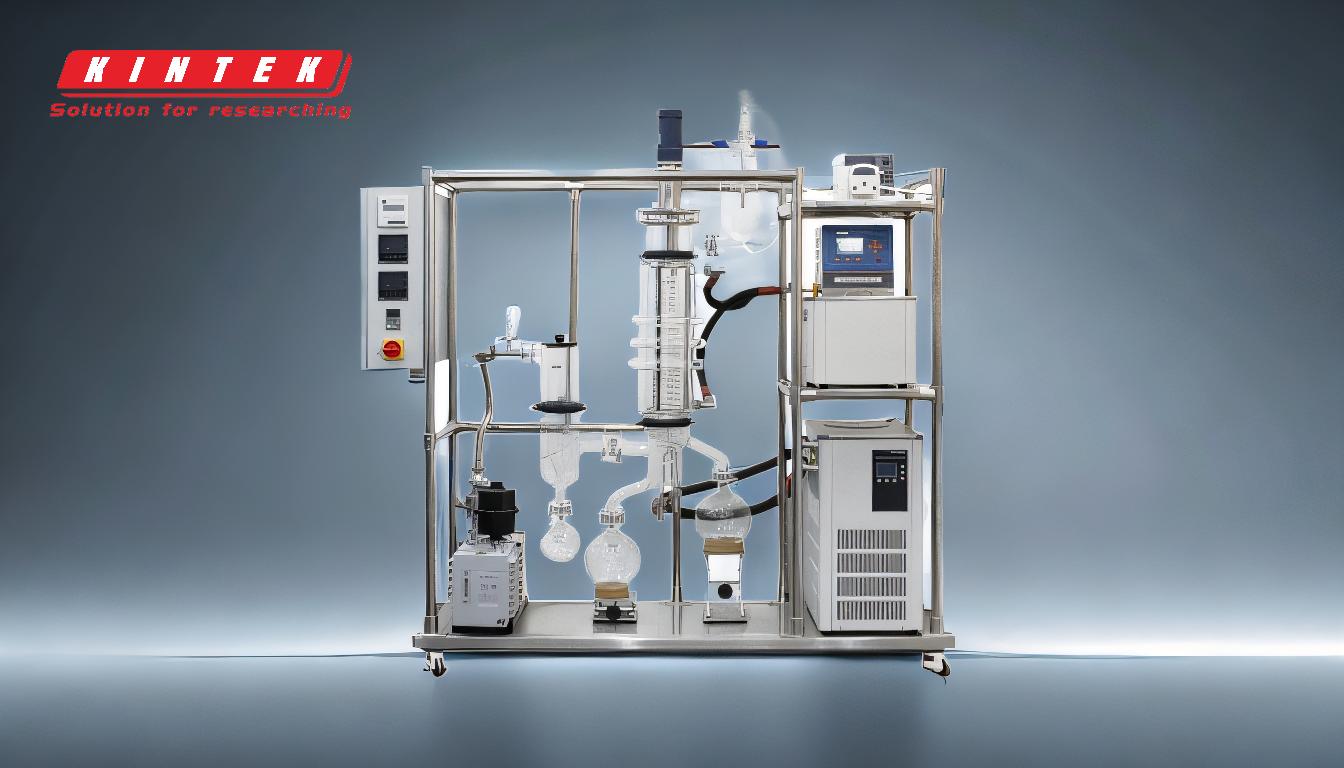Vacuum distillation is superior to simple distillation because it operates under reduced pressure, which significantly lowers the boiling points of compounds. This allows for distillation at much lower temperatures, making it ideal for heat-sensitive materials that could degrade or react adversely at higher temperatures. Additionally, vacuum distillation offers faster evaporation rates, better separation efficiency, and the ability to handle complex mixtures without altering their composition. It also reduces the risk of thermal degradation, improves product purity, and can be more cost-effective on an industrial scale by reducing the size of distillation columns.
Key Points Explained:

-
Lower Boiling Points Due to Reduced Pressure:
- In vacuum distillation, the pressure inside the system is reduced, which lowers the boiling points of the compounds being distilled. This is particularly beneficial for heat-sensitive organic compounds that might decompose, polymerize, or combust at higher temperatures. By operating at lower temperatures, vacuum distillation ensures the integrity and purity of the final product.
-
Enhanced Safety for Sensitive Compounds:
- The reduced temperatures in vacuum distillation minimize the risk of thermal degradation, making it safer for delicate compounds. This is crucial in industries like pharmaceuticals, food, and cosmetics, where preserving the chemical structure and properties of the product is essential.
-
Faster and More Efficient Distillation:
- The reduced pressure not only lowers boiling points but also increases the rate of evaporation. This leads to faster distillation processes compared to simple distillation. Additionally, in systems like rotary evaporators, the rotation of the flask increases the surface area of the liquid, further enhancing the efficiency of the process.
-
Improved Separation and Purity:
- Vacuum distillation allows for better separation of components with close boiling points, which is often challenging in simple distillation. The reduced pressure and controlled conditions ensure a purer distillate with minimal contamination or degradation.
-
Precision and Control:
- Vacuum distillation systems, such as rotary evaporators, offer precise control over the distillation process. This includes control over temperature, pressure, and rotation speed, enabling the extraction of specific compounds without altering their properties. This precision is particularly valuable in applications like flavor and fragrance extraction.
-
Industrial-Scale Advantages:
- On an industrial scale, vacuum distillation reduces the capital cost of distillation columns by decreasing their height and diameter. It also increases capacity, yield, and purity while minimizing product degradation due to lower residence times and temperatures. Although operating costs may be slightly higher, the overall efficiency and quality improvements often justify the investment.
-
Versatility in Applications:
- Vacuum distillation is versatile and can be used for a wide range of applications, from separating liquids from solids to removing undesirable elements like tannins or bitterness while retaining desired flavors and essences. This makes it a preferred method in industries such as food, beverage, and essential oil production.
-
Solvent Recovery:
- Vacuum distillation systems, especially rotary evaporators, are highly efficient in recovering solvents. They can recover nearly 100% of the solvent, which is both cost-effective and environmentally friendly.
-
Reduced Thermal Degradation:
- By operating at lower temperatures, vacuum distillation minimizes the risk of thermal degradation, ensuring that the final product retains its desired properties and quality. This is particularly important for compounds that are sensitive to heat.
-
Cost-Effectiveness in the Long Run:
- While vacuum distillation systems may have higher initial and operating costs compared to simple distillation, their ability to handle complex mixtures, improve product quality, and reduce degradation often leads to long-term cost savings and higher profitability.
In summary, vacuum distillation is a superior method for many applications due to its ability to operate at lower temperatures, improve efficiency, and preserve the integrity of sensitive compounds. Its precision, versatility, and cost-effectiveness make it a preferred choice in both laboratory and industrial settings.
Summary Table:
| Advantage | Description |
|---|---|
| Lower Boiling Points | Reduced pressure lowers boiling points, ideal for heat-sensitive compounds. |
| Enhanced Safety | Minimizes thermal degradation, preserving delicate compounds. |
| Faster Evaporation | Increased evaporation rates for quicker distillation. |
| Improved Separation and Purity | Better separation of components with close boiling points. |
| Precision and Control | Precise control over temperature, pressure, and rotation speed. |
| Industrial-Scale Efficiency | Reduces capital costs and improves yield and purity. |
| Versatility | Suitable for a wide range of applications, from food to pharmaceuticals. |
| Solvent Recovery | Efficient recovery of solvents, up to 100%. |
| Reduced Thermal Degradation | Ensures product integrity by operating at lower temperatures. |
| Long-Term Cost-Effectiveness | Higher initial costs offset by improved efficiency and product quality. |
Ready to enhance your distillation process? Contact us today to learn more about vacuum distillation solutions!










